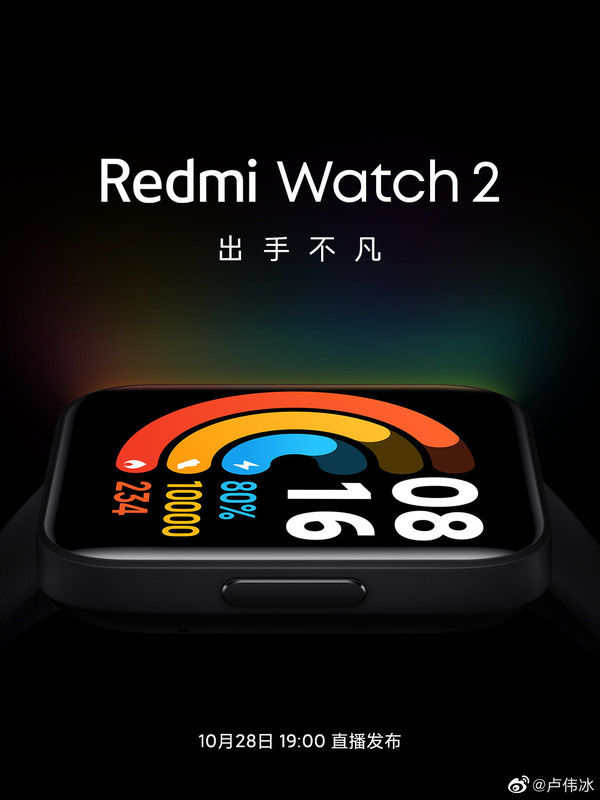жң¬ж–ҮжҰӮиҝ°
- 1.е®үиЈ…MobileDetectBundle
- 2.д»ҺжҺ§еҲ¶еҷЁе’Ңи§ҶеӣҫжүӢеҠЁдҪҝз”ЁMobile Detect Bundle
- 3.иҮӘеҠЁй…ҚзҪ®з§»еҠЁжЈҖжөӢжҚҶз»‘
еңЁSymfonyйЎ№зӣ®дёӯ, еҰӮжһңдҪҝз”ЁжӯЈзЎ®зҡ„е·Ҙе…·, еҲҷжӯӨд»»еҠЎе°Ҷйқһеёёе®№жҳ“гҖӮдёәдәҶжЈҖжөӢдҪҝз”Ёи®ҝй—®иҖ…жҹҘзңӢдҪ зҪ‘з«ҷзҡ„е№іеҸ°, жҲ‘们е»әи®®дҪ дҪҝ用移еҠЁжЈҖжөӢжҚҶз»‘еҢ…гҖӮиҜҘжҚҶз»‘еҢ…дҫқиө–дәҺMobile DetectйЎ№зӣ®гҖӮ Mobile_DetectжҳҜз”ЁдәҺжЈҖжөӢ移еҠЁи®ҫеӨҮ(еҢ…жӢ¬е№іжқҝз”өи„‘)зҡ„иҪ»йҮҸзә§PHPзұ»гҖӮе®ғз»“еҗҲдҪҝз”ЁUser-Agentеӯ—з¬ҰдёІе’Ңзү№е®ҡзҡ„HTTPж ҮеӨҙжқҘжЈҖжөӢ移еҠЁзҺҜеўғгҖӮ
еңЁжң¬ж–Үдёӯ, дҪ е°ҶеӯҰд№ еҰӮдҪ•еңЁSymfony 3йЎ№зӣ®дёӯе®үиЈ…е’Ңе®һзҺ°Mobile Detect BundleгҖӮ
1.е®үиЈ…MobileDetectBundleMobileDetectBundleжҳҜSymfonyе…је®№зҡ„2.4.xе’Ң3.0.xжҚҶз»‘иҪҜ件, з”ЁдәҺжЈҖжөӢ移еҠЁи®ҫеӨҮ, з®ЎзҗҶ移еҠЁи§Ҷеӣҫ并йҮҚе®ҡеҗ‘еҲ°з§»еҠЁе’Ңе№іжқҝз”өи„‘зүҲжң¬гҖӮе®ғжҸҗдҫӣд»ҘдёӢеҠҹиғҪпјҡ
- йҖҡиҝҮеҗҚз§°, ж“ҚдҪңзі»з»ҹ, жөҸи§ҲеҷЁз”ЁжҲ·д»ЈзҗҶжқҘжЈҖжөӢеҗ„з§Қ移еҠЁи®ҫеӨҮгҖӮ
- з®ЎзҗҶеҗ„з§Қ移еҠЁи®ҫеӨҮ(移еҠЁи®ҫеӨҮ, е№іжқҝз”өи„‘, е®Ңж•ҙи®ҫеӨҮ)зҡ„зҪ‘з«ҷи§ҶеӣҫгҖӮ
- йҮҚе®ҡеҗ‘еҲ°жүӢжңәе’Ңе№іжқҝз”өи„‘зҪ‘з«ҷгҖӮ
composer require suncat/mobile-detect-bundleеҸҰеӨ–, дҪ еҸҜд»Ҙдҝ®ж”№composer.jsonж–Ү件并жүӢеҠЁе°Ҷеә“ж·»еҠ дёәдҫқиө–йЎ№пјҡ
{"require": {"suncat/mobile-detect-bundle": "^1.0"}, }然еҗҺеңЁиҜҘзӣ®еҪ•дёҠиҝҗиЎҢcomposer installгҖӮйҖҡиҝҮcomposerе®ҢжҲҗеә“зҡ„е®үиЈ…еҗҺ, иҜ·з»§з»ӯеңЁAppKernel.phpдёӯеҗҜз”ЁжҚҶз»‘иҪҜ件пјҡ
<
?phppublic function registerBundles(){$bundles = [// ...// Enable MobileDetectBundlenew SunCat\MobileDetectBundle\MobileDetectBundle(), // ...];
// ... //}жё…йҷӨйЎ№зӣ®зҡ„зј“еӯҳ, еҚіеҸҜдҪҝз”ЁйЎ№зӣ®дёӯзҡ„еә“гҖӮеҰӮжһңдҪ йңҖиҰҒжңүе…іжӯӨжҚҶз»‘еҢ…зҡ„жӣҙеӨҡдҝЎжҒҜ, иҜ·еңЁжӯӨеӨ„и®ҝй—®Githubдёӯзҡ„е®ҳж–№еӯҳеӮЁеә“гҖӮ
2.д»ҺжҺ§еҲ¶еҷЁе’Ңи§ҶеӣҫжүӢеҠЁдҪҝз”ЁMobile Detect BundleжӯӨжҚҶз»‘еҢ…дёӯзҡ„第дёҖдёӘд№ҹжҳҜжңҖжңүз”Ёзҡ„дәӢжғ…жҳҜ, дҪ еҸҜд»ҘжҜ«дёҚиҙ№еҠӣең°еҚ•зӢ¬дҪҝз”Ёе®ғжҸҗдҫӣзҡ„и®ёеӨҡеҠҹиғҪ, е№¶дё”ж— йңҖеҲӣе»әиҮӘе®ҡд№үзҡ„TwigеҮҪж•°еҚіеҸҜйӘҢиҜҒз”ЁжҲ·д»ҺAndroidи®ҫеӨҮеҜјиҲӘиҝҳжҳҜд»ҺдҪ зҡ„е…¶д»–жөҸи§ҲеҷЁеҜјиҲӘж„Ҹи§ҒгҖӮеҪ“дҪ иҰҒж №жҚ®з”ЁжҲ·и®ҝй—®зҡ„е№іеҸ°еҗ‘з”ЁжҲ·еұ•зӨәжҹҗдәӣе№ҝе‘Ҡж—¶, иҝҷйқһеёёж–№дҫҝгҖӮ
йҖҡеёёжЈҖжҹҘи®ҫеӨҮзұ»еһӢ
еңЁеӨ§еӨҡж•°жғ…еҶөдёӢ, дҪ еҸӘйңҖиҰҒжЈҖжҹҘз”ЁжҲ·жҳҜеҗҰжӯЈеңЁд»Һ移еҠЁи®ҫеӨҮ, е№іжқҝз”өи„‘жҲ–еҸ°ејҸи®Ўз®—жңәдёҠеҜјиҲӘеҚіеҸҜгҖӮж №жҚ®isTabletжҲ–isMobileд№Ӣзұ»зҡ„ж–№жі•зҡ„з»“жһң, еҸҜд»ҘдҪҝз”ЁжқЎд»¶иҜӯеҸҘиҪ»жқҫе®һзҺ°пјҡ
<
?phpnamespace AppBundle\Controller;
use Sensio\Bundle\FrameworkExtraBundle\Configuration\Route;
use Symfony\Bundle\FrameworkBundle\Controller\Controller;
use Symfony\Component\HttpFoundation\Request;
use Symfony\Component\HttpFoundation\Response;
class DefaultController extends Controller{/*** @Route("/", name="homepage")*/public function indexAction(Request $request){// Retrieve the mobile detector service$mobileDetector = $this->
get('mobile_detect.mobile_detector');
// Create a flag string to returns as response$responseText = "Another kind of device";
// Verify from the controller if is a tabletif($mobileDetector->
isTablet()){$responseText = "You're using a tablet, our system works only in Desktop computers";
// Verify if it's a mobile device (tablet is a mobile device too)}else if($mobileDetector->
isMobile()){$responseText = "You're using a mobile device, our system works only in Desktop computers";
}return new Response($responseText);
}}еңЁе…¶д»–жғ…еҶөдёӢ, дҪ дёҚйңҖиҰҒд»ҺжҺ§еҲ¶еҷЁжЈҖжҹҘжӯӨдҝЎжҒҜ, иҖҢеҸӘйңҖдҪҝз”ЁTwigжҹҘзңӢи§ҶеӣҫгҖӮе№ёиҝҗзҡ„жҳҜ, жңүдәҶиҝҷдёӘжҚҶз»‘еҢ…, дҪ е°ҶдёҚйңҖиҰҒеҗ‘Twigе…¬ејҖиҮӘе®ҡд№үеҠҹиғҪ, еӣ дёәе®ғе·Із»ҸжҸҗдҫӣдәҶеҸҜд»ҘеңЁи§ҶеӣҫдёӯдҪҝз”Ёзҡ„иҮӘе®ҡд№үеҠҹиғҪпјҡ
{% extends 'base.html.twig' %}{% block body %}{% if is_mobile() %}{# Tablets are mobile devices too #}<
h1>
Is a Mobile device<
/h1>
{% endif %}{% if is_tablet() %}<
h1>
Is a Tablet<
/h1>
{% endif %}{% endblock %}иҝҷж ·, дҪ еҸҜд»ҘйӘҢиҜҒжӣҙеӨҚжқӮзҡ„и®ҫеӨҮжЁЎејҸжҲ–ж №жҚ®е№іеҸ°еҸ‘йҖҒжҹҗдәӣдҝЎжҒҜ, иҖҢж— йңҖйҮҚе®ҡеҗ‘еҲ°еҸҰдёҖдёӘзҪ‘з«ҷгҖӮ
жЈҖжҹҘж“ҚдҪңзі»з»ҹ
дҪ еҸҜд»ҘдҪҝз”Ёis *(е…¶дёӯйҖҡй…Қз¬ҰжҳҜж“ҚдҪңзі»з»ҹж ҮиҜҶз¬Ұ)еҠҹиғҪжЈҖжҹҘз”ЁжҲ·еҪ“еүҚжӯЈеңЁдҪҝз”Ёе“ӘдёӘж“ҚдҪңзі»з»ҹпјҡ
<
?phpnamespace AppBundle\Controller;
use Sensio\Bundle\FrameworkExtraBundle\Configuration\Route;
use Symfony\Bundle\FrameworkBundle\Controller\Controller;
use Symfony\Component\HttpFoundation\Request;
use Symfony\Component\HttpFoundation\Response;
class DefaultController extends Controller{/*** @Route("/", name="homepage")*/public function indexAction(Request $request){// Retrieve the mobile detector service$mobileDetector = $this->
get('mobile_detect.mobile_detector');
// Check for different mobile operative systems// They return a boolean (true if match)$mobileDetector->
isAndroidOS();
$mobileDetector->
isBlackBerryOS();
$mobileDetector->
isPalmOS();
$mobileDetector->
isSymbianOS();
$mobileDetector->
isWindowsMobileOS();
$mobileDetector->
isiOS();
$mobileDetector->
isbadaOS();
return new Response("Some response text");
}}еҗҢж ·, дҪ еҸҜд»ҘеңЁTwigдёӯдҪҝз”ЁиҝҷдәӣеҠҹиғҪ(д»…iOSе’ҢAndroid)пјҡ
{% extends 'base.html.twig' %}{% block body %}{% if is_android_os() %}<
h1>
Android<
/h1>
{% endif %}{% if is_ios() %}<
h1>
iOS<
/h1>
{% endif %}{% endblock %}жЈҖжҹҘ移еҠЁжөҸи§ҲеҷЁзҡ„з”ЁжҲ·д»ЈзҗҶ
дҪ еҸҜд»ҘеңЁжҺ§еҲ¶еҷЁдёӯжЈҖжҹҘи®ҝй—®иҖ…жӯЈеңЁдҪҝз”Ёе“Әз§ҚжөҸи§ҲеҷЁпјҡ
<
?phpnamespace AppBundle\Controller;
use Sensio\Bundle\FrameworkExtraBundle\Configuration\Route;
use Symfony\Bundle\FrameworkBundle\Controller\Controller;
use Symfony\Component\HttpFoundation\Request;
use Symfony\Component\HttpFoundation\Response;
class DefaultController extends Controller{/*** @Route("/", name="homepage")*/public function indexAction(Request $request){$mobileDetector = $this->
get('mobile_detect.mobile_detector');
/** Returns a boolean (true in case the browser matches)*/$mobileDetector->
isChrome();
$mobileDetector->
isSafari();
$mobileDetector->
isDolfin();
$mobileDetector->
isOpera();
$mobileDetector->
isSkyfire();
$mobileDetector->
isIE();
$mobileDetector->
isFirefox();
$mobileDetector->
isBolt();
$mobileDetector->
isTeaShark();
$mobileDetector->
isBlazer();
$mobileDetector->
isSafari();
$mobileDetector->
isMidori();
$mobileDetector->
isGenericBrowser();
return new Response("");
}}3.иҮӘеҠЁй…ҚзҪ®з§»еҠЁжЈҖжөӢжҚҶз»‘иҝҷдёҖжӯҘеҸҜиғҪжңүзӮ№йә»зғҰе’ҢжЈҳжүӢгҖӮеҰӮжһңеңЁз§»еҠЁи®ҫеӨҮе’ҢеҸ°ејҸжңәзҡ„зҪ‘з«ҷдёҠдҪҝз”ЁеӨҡдёӘеҹҹ, еҲҷеҸҜд»Ҙе°Ҷдё»йЎ№зӣ®й…ҚзҪ®дёәйҮҚе®ҡеҗ‘еҲ°еҸҰдёҖдёӘURL, з”ҡиҮіеҸҜд»ҘеҜ№еҗҢдёҖзҪ‘з«ҷдҪҝз”ЁзӣёеҗҢзҡ„SymfonyйЎ№зӣ®, дҪҶиҜҘйЎ№зӣ®дҪҚдәҺдёҚеҗҢзҡ„еҹҹгҖӮ
дёәжӯӨ, иҜ·жҢүз…§дёӢеҲ—жӯҘйӘӨж“ҚдҪңпјҡ
1.еңЁдҪ зҡ„config.ymlдёӯй…ҚзҪ®йҮҚе®ҡеҗ‘
第дёҖжӯҘ, дҪ жғійҖҡиҝҮеңЁconfig.ymlдёӯж·»еҠ йҖӮеҪ“зҡ„й…ҚзҪ®, е°Ҷи®ҝй—®дҪ зҪ‘з«ҷ(www.yourweb.com)зҡ„з”ЁжҲ·д»Һ移еҠЁи®ҫеӨҮйҮҚе®ҡеҗ‘еҲ°з§»еҠЁеҹҹ(www.m.yourweb.com)гҖӮд»ҘдёӢд»Јз Ғж®өдјҡе°Ҷи®ҝй—®дҪ зҪ‘з«ҷзҡ„жүҖжңүз”ЁжҲ·д»Һ移еҠЁи®ҫеӨҮ(е№іжқҝз”өи„‘е’Ңз”өиҜқ)йҮҚе®ҡеҗ‘еҲ°з§»еҠЁеҹҹпјҡ
mobile_detect:redirect:mobile:is_enabled: truehost: http://m.ourcodeworld.comstatus_code: 301action: redirecttablet: ~switch_device_view: ~иҜ·жіЁж„Ҹ, иҝҷеҸӘжҳҜдёҖдёӘзӨәдҫӢ, дҪ з”ҡиҮіеҸҜд»ҘйҮҚе®ҡеҗ‘еҲ°е№іжқҝз”өи„‘еҹҹгҖӮйҳ…иҜ»ж–ҮжЎЈдёӯзҡ„е®Ңж•ҙй…ҚзҪ®еҢәеҹҹ, д»ҘиҺ·еҸ–жӣҙеӨҡдҝЎжҒҜгҖӮ
2.еҲӣе»әдёҖдёӘж–°зҡ„еә”з”ЁзЁӢеәҸж–Ү件
еҰӮдҪ жүҖзҹҘ, еңЁз”ҹдә§дёӯ, дҪҚдәҺyourapp / webдёӯзҡ„app.phpж–Ү件жҳҜеә”з”ЁзЁӢеәҸзҡ„е…ҘеҸЈгҖӮдёәдәҶдёәдҪ зҡ„еә”з”ЁзЁӢеәҸеҲӣе»ә移еҠЁйЎ№, иҜ·еӨҚеҲ¶app.phpж–Ү件并е°Ҷе…¶зІҳиҙҙеҲ°е…·жңүж–°еҗҚз§°app_mobile.phpзҡ„еҗҢдёҖзӣ®еҪ•дёӯгҖӮзҺ°еңЁжҗңзҙўд»ҘдёӢиЎҢ(еңЁз¬¬9иЎҢйҷ„иҝ‘)пјҡ
$kernel = new AppKernel('prod', false);
жӯӨиЎҢжҢҮе®ҡеә”з”ЁдәҺдҪ зҡ„еә”з”ЁзЁӢеәҸзҡ„зҺҜеўғзұ»еһӢ(жңҖеҲқжңү2дёӘеә”з”ЁзЁӢеәҸж–Ү件app.phpе’Ңapp_dev.php)гҖӮзҺ°еңЁ, еңЁеӨҚеҲ¶зҡ„ж–Ү件(app_mobile.php)дёӯ, е°ҶзҺҜеўғд»Һprodдҝ®ж”№дёәmobileпјҡ
$kernel = new AppKernel('mobile', false);
е°Ҷжӣҙж”№дҝқеӯҳеңЁж–Ү件дёҠ, 然еҗҺ继з»ӯдёӢдёҖжӯҘгҖӮ
3.еҲӣе»әж–°зҡ„й…ҚзҪ®ж–Ү件
зҺ°еңЁ, еңЁyourapp / app / configж–Ү件еӨ№дёӯеҲӣе»әдёҖдёӘж–°зҡ„config_mobile.ymlж–Ү件, 并еңЁе…¶дёӯж·»еҠ д»ҘдёӢеҶ…е®№пјҡ
imports:- { resource: parameters.yml }framework:secret: "%secret%"router:resource: "%kernel.root_dir%/config/routing_mobile.yml"mobile_detect:redirect:mobile:is_enabled: falsetablet: ~full:is_enabled: truehost: http://ourcodeworld.comswitch_device_view: ~жҲ‘们жӯЈеңЁеҒҡзҡ„жҳҜдҪҝз”ЁжңҖеҹәжң¬зҡ„и®ҫзҪ®, жЎҶжһ¶е’Ңmobile_detectеҲӣе»әдёҖдёӘиҮӘе®ҡд№үй…ҚзҪ®ж–Ү件гҖӮеңЁmobile_detectеҢәеҹҹдёӯ, жҲ‘们е°ҶжҢҮзӨәеҰӮжһңжңүдәәйҖҡиҝҮ移еҠЁи®ҫеӨҮи®ҝ问移еҠЁзҪ‘з«ҷ, еҲҷеә”е°Ҷе…¶йҮҚе®ҡеҗ‘еҲ°жЎҢйқўзүҲ(е®Ңж•ҙзүҲ), 并且еңЁйҮҚе®ҡеҗ‘ж“ҚдҪңдёӯе°ҶзҰҒ用移еҠЁзүҲгҖӮ
4.й…ҚзҪ®дҪ зҡ„移еҠЁеҹҹд»Ҙе®ҡдҪҚapp_mobile.phpж–Ү件
жңҖеҗҺдёҖжӯҘз”ұдҪ еҶіе®ҡ, е…·дҪ“еҸ–еҶідәҺдҪ зҡ„жңҚеҠЎеҷЁгҖӮдҪ йңҖиҰҒжҢҮе®ҡдҪ зҡ„移еҠЁеҹҹ(www.m.yourweb.com)е®ҡдҪҚеҲ°app_mobile.phpж–Ү件иҖҢдёҚжҳҜapp.phpж–Ү件гҖӮйҮҚж–°еҗҜеҠЁhttpжңҚеҠЎеҷЁеҗҺ, жүҖжңүеҶ…е®№еқҮеә”жӯЈеёёе·ҘдҪңгҖӮиҝҳиҜ·и®°дҪҸ, еҰӮжһңеҜ№й…ҚзҪ®иҝӣиЎҢдәҶжӣҙж”№, иҜ·жё…йҷӨзј“еӯҳ, еҗҰеҲҷдҪ еҸҜиғҪдёҖж— жүҖиҺ·гҖӮ
гҖҗеҰӮдҪ•еңЁSymfony 3дёӯжЈҖжөӢ移еҠЁи®ҫеӨҮгҖ‘зј–з Ғж„үеҝ«пјҒ
жҺЁиҚҗйҳ…иҜ»
- FOSUserBundleпјҲеҝ…йЎ»й…ҚзҪ®и·Ҝеҫ„”fos_user”зҡ„еӯҗиҠӮзӮ№”from_email”пјү
- еҰӮдҪ•еңЁWinFormsдёӯдёәCefSharpеҗҜз”ЁWebRTC(и®ҝй—®ж‘„еғҸжңәе’ҢйәҰе…ӢйЈҺ)
- еҰӮдҪ•еңЁSymfony 3дёӯе°Ҷж•°еӯ—иҪ¬жҚўдёәеҚ•иҜҚ(ж•°еӯ—жӢјеҶҷ)
- еҰӮдҪ•и§ЈеҶіMySQL常规й”ҷиҜҜпјҲ1030д»ҺеӯҳеӮЁеј•ж“Һеҫ—еҲ°дәҶ139й”ҷиҜҜпјү
- еҰӮдҪ•еңЁSymfony 3дёӯдҪҝз”ЁphpеҲӣе»әWordж–Ү件
- еҰӮдҪ•еңЁWinFormsдёӯдҪҝз”ЁCпјғжЈҖзҙўCPUзҡ„жё©еәҰ
- еҰӮдҪ•д»ҺжҺ§еҲ¶еҷЁжү§иЎҢsymfonyе‘Ҫд»Ө
- еҰӮдҪ•еңЁWinFormsдёӯдҪҝз”ЁCпјғжЈҖзҙўдё»жқҝдҝЎжҒҜ
- еңЁAndroidдёҠе°ҶCanvas移жӨҚеҲ°OpenGL











